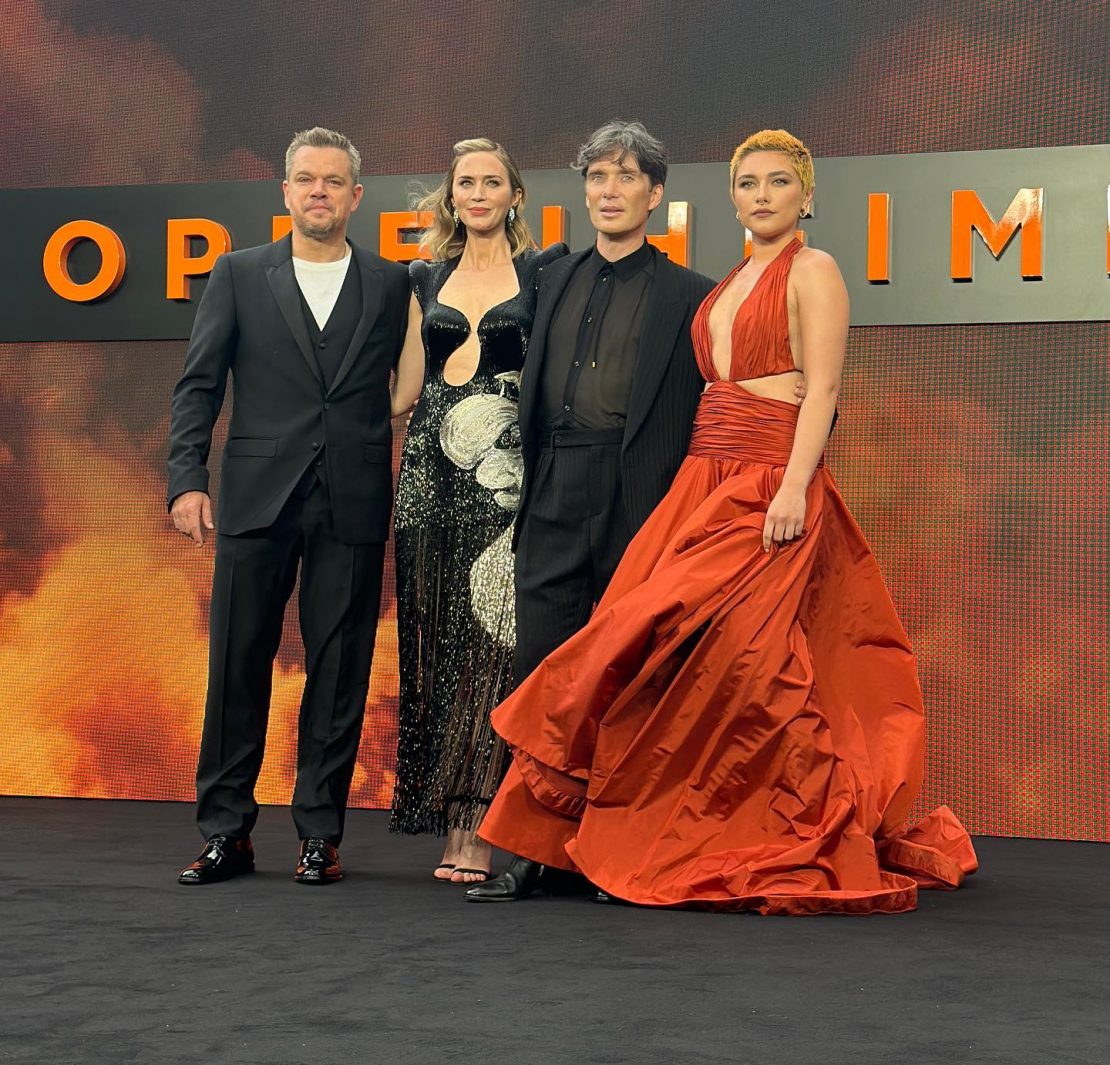Hollywood officially faces its biggest shutdown in 63 years as actors went on strike, after a labour dispute with the Alliance of Motion Picture and Television Producers (AMPTP).
The aftereffects of the strike are already visible, even all the way across the pond. At the highly anticipated Oppenheimer premiere in London, major actors including the A-list cast of the film all walked out of the red carpet at the stroke of midnight. “Look, if it’s called now, everyone’s going to walk obviously in solidarity,” Matt Damon told Variety on the carpet. The cast even moved the red carpet up by an hour so they could attend it before the inevitable strike began.
The Screen Actors Guild (SAG-AFTRA), which represents 160,000 performers including A-list stars had been in talks with the AMPTP, advocating for higher base pay and residuals in the streaming TV era, while also seeking guarantees that artificial intelligence (AI) won’t replace their creative contributions. Residuals are basically a form of compensation that actors receive for the reuse or rerun of their work in television shows, films, or other media. The same goes for writers. With the rise of streaming platforms, however, determining the appropriate residual rates is now more complex, since these platforms offer content on-demand.
AMPTP represents major motion picture houses like Netflix and Disney, and since 1982, they have been the trade association responsible for negotiating virtually all industry-wide guild and union contracts. Their negotiations with SAG reportedly fell through, and the union went ahead with their strike, joining writers on picket lines. The Writers Guild of America (WGA) has been on strike for more than 70 days now, protesting inadequate compensation as well.
July is a major month for Hollywood as some of the biggest releases of the summer hit theatres. Mission Impossible: Dead Reckoning opened in theatres on Wednesday to $15.5 million, including $7 million in previews on Tuesday. Greta Gerwig’s Barbie is on its way to becoming a global blockbuster next weekend, and Oppenheimer, which opens on the same day, will likely follow the same path. But now all promotions for these films have been cancelled – so last night was probably the last we ever saw of Margot Robbie’s immaculate Barbie-inspired fits or Ryan Gosling’s ‘Ken-ergy’ on the red carpet. Just days ago, the coveted Emmy Awards released their nominations, but they might also face postponement.
Since the writers’ strike began, it has already forced late-night shows to broadcast reruns, while the majority of TV and film productions have come to a standstill or temporarily halted. Prominent shows like “Yellowjackets,” “Severance,” and “Stranger Things” suspended their operations and it’s hard to tell when we will get to see further seasons.
But since the shows had completed most of the season’s writing and most of the major films were in post-production, the effects of that are not too visible to outsiders yet. With the actors joining the strike, though, it’s going to be a bigger blow to the industry and even production houses admit that.
This is the first industry-wide shutdown in six decades – the last time actors and writers both walked out like this was over how much TV networks paid for films. At the time, Ronald Reagan was president of the Screen Actors Guild, a predecessor to SAG-AFTRA. Since then, there have been a few strikes, like the 2008 WGA strike that lasted 100 days. The actors last staged a major walkout in 1980; it lasted more than three months.





Warning: Use of undefined constant ‘url’ - assumed '‘url’' (this will throw an Error in a future version of PHP) in /var/www/html/wp-content/themes/theissue/functions.php on line 143